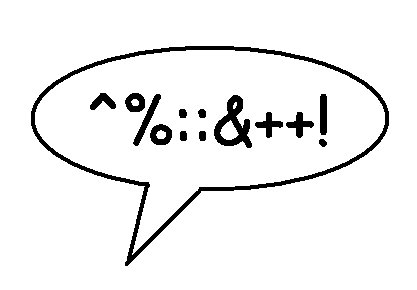"S - - T!!!" Admit it, letting loose with an expletive somehow makes you feel better after you accidentally slice your finger or stub your toe. Now that research has confirmed that cursing does indeed reduce the sensation of pain, perhaps we can sometimes give ourselves permission to yell bad words even louder, without worrying about what anyone will think.
Swear When It Hurts
Richard Stephens, PhD, a lecturer in psychology and the director of the master’s degree program in psychological research methods at Keele University in Staffordshire, England, conducted a study exploring how cursing provides pain relief. It was published in the journal NeuroReport. His study involved a mixed-gender group of university students who were asked to repeat either a curse word or a neutral control word while their hands were submerged in icy water. Researchers found that swearing enabled participants to withstand the uncomfortably icy water for significantly longer. It brought about a measurable reduction in the perception of pain (calibrated with a pain perception questionnaire) and significantly increased heart rate (measured with an electronic heart-rate monitor).
Dr. Stephens told me that participants were asked to repeat their assigned word over and over again at a consistent pace. "By using the same word over and over, we were attempting to keep conditions consistent," he said. "We looked specifically at pain tolerance and perception. When the study participants swore while experiencing the pain stimulus, they found the cold water less painful."
Ladies First...
Women, in particular, experienced a greater drop in pain perception when they were swearing. "We know that swearing evokes certain emotional responses, and that, in general, men tend to swear more than women," Dr. Stephens explained. "We speculated that in people who swear frequently, the emotional response erodes, making it a less effective mechanism in reducing the perception of pain or the ability to tolerate it."
Dr. Stephens also found that swearing was less effective in male participants who had been identified as being predisposed toward catastrophizing pain. For example, he said that if a person is prone to thinking that a small cut on his hand is likely to result in a nasty infection or some other catastrophic outcome, swearing will be less effective as a coping mechanism.
I may not feel particularly proud of myself the next time I bump my head and blurt out a naughty word -- but at least I know there’s science to justify my reaction.
















